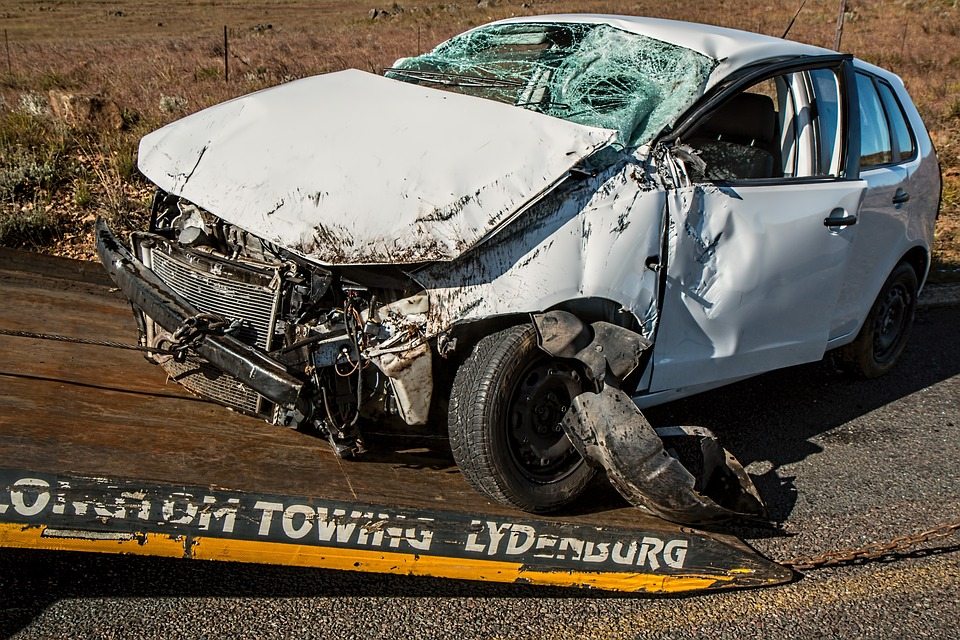Car Accidents & Traumatic Brain Injuries: Causes and Initial Signs of TBI

Overview of Traumatic Brain Injuries
Traumatic brain injuries (TBIs) are injuries caused by blunt impact or penetrative impact of the head affecting the brain or skull. The most common sources of these injuries are car or motorcycle accidents, athletic injuries, and falling accidents. The severity of injury can range from mild concussions to severe, permanent brain damage. According to the Centers for Disease Control and Prevention (CDC), 138 people in the United States die from TBIs every day. Falling is the leading cause of TBI at 40.5%, but of the remaining known causes, motor vehicle accidents are one of the most substantial at 14.3%. Predominantly, children and young adults (ages 5-24) are most often mortally wounded by TBIs in automobile accidents. Additionally, people between the ages of 15 and 44 are most often hospitalized for TBIs due to automotive accidents.
Regardless of the cause, traumatic brain injuries often arise from a swift jolting or shaking of the head upon impact during a car accident. This causes the brain to collide with the skull, which then leads to bruising, bleeding, or even skull fractures. In automobile accidents, a TBI can occur from a severe cranial impact with consoles, steering wheels, or head rests. However, they can also occur from common accident injuries such as whiplash.
Symptoms of TBI are often similar to less grave brain injuries. These symptoms include:
- Persistent headaches
- Difficulty focusing
- Sensitivity to light and sound
- Issues with equilibrium
- Nausea and vomiting
- Changes in mood and sleep patterns
Diagnosis
Given that these symptoms are common for a variety of different health issues, it can be difficult to distinguish whether or not a patient has TBI or a different type of injury related to a vehicle collision. The fact that TBIs are often overlooked has been a major factor in TBIs becoming an epidemic in the United States. Thus, it is of the utmost importance to seek medical attention right away if you suspect you may have a TBI, as medical professionals will be able to diagnose and monitor whether or not injuries from an accident could cause a TBI.
If a TBI is suspected, it will likely be diagnosed via brain scanning (CT, MRI, or MRS) and evaluated according to the Glasgow Coma Score (GCS). The GCS is a 15-point scale that determines the severity of a TBI with higher scores (12-15) signifying a mild injury and lower scores signifying a severe TBI.
Car Accidents and TBIs
In automobile accidents where TBIs are common, there are many ways you can ensure better safety for yourself and others. First and foremost, wearing a seat belt dramatically reduces the likelihood of your head coming into contact with the steering wheel, dashboard, or windshield of the vehicle.
Secondly, never by any means drive while under the influence of drugs or alcohol. This will lower your ability to perceive and react to traffic and increase the likelihood of accidents to occur.
It is also important to ensure that your vehicle has crashworthiness, a term defining the ability of a vehicle to withstand an accident while protecting the occupants. Ensuring that your vehicle has a sound structure may help prevent severe injuries, including TBIs, though it does depend on the type of accident and manner by which collision occurs. You can find information about your vehicle’s crashworthiness by clicking here.
Traumatic brain injuries can be frightening given their causes and symptoms. However, if you are in an accident and feel you may be suffering from a TBI, you should seek out medical attention and continue with follow-up consultations to ensure your condition doesn’t worsen.
And if you or a loved one has suffered a personal injury like a TBI due to someone else’s negligence, please call Hossley & Embry at (866) 522-9265 or send us an email at newcase@hossleyembry.com. You can also fill out a convenient online form, and we will be in touch promptly. We offer free consultations, and we have the resources available (including charter aircraft) to travel throughout Texas and the United States on short notice to investigate your potential claim.
References:
Masters, J. (2014, October 27). Car accidents and traumatic brain injury. Brain Injury Society. Retrieved from http://www.bisociety.org/car-accidents-traumatic-brain-injury/
Ratings. (2016). Insurance Institute for Highway Safety. Retrieved from http://www.iihs.org/iihs/ratings
TBI: Get the facts (2016, January 22). Centers for Disease Control and Prevention. Retrieved from http://www.cdc.gov/traumaticbraininjury/get_the_facts.html
Traumatic brain injury. (2013, February). Mayfield Brain & Spine. Retrieved from http://www.mayfieldclinic.com/PE-TBI.htm
Traumatic brain injury (TBI). (2016). American Speech-Language-Hearing Association. Retrieved from http://www.asha.org/public/speech/disorders/TBI/#common
Types and levels of brain injury. (n.d.). Brain Injury Alliance. Retrieved from http://biau.org/types-and-levels-of-brain-injury/







